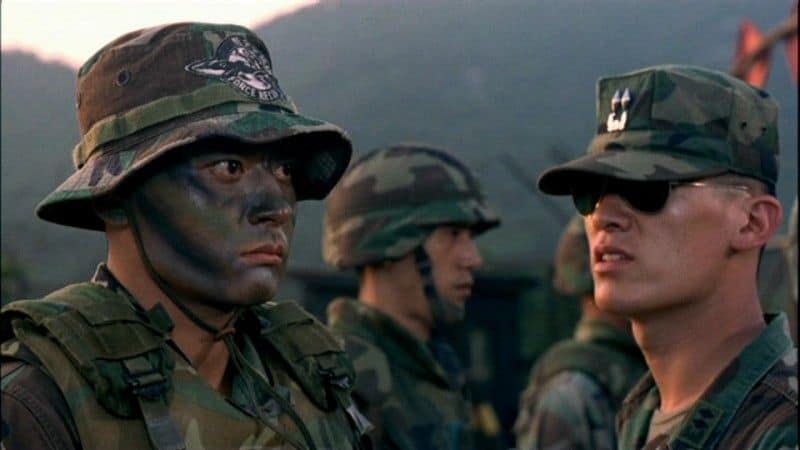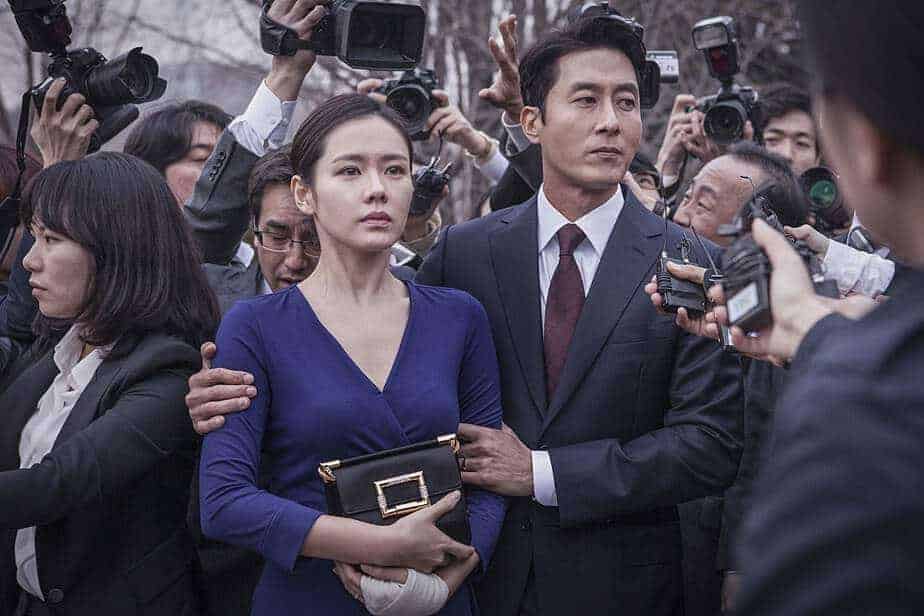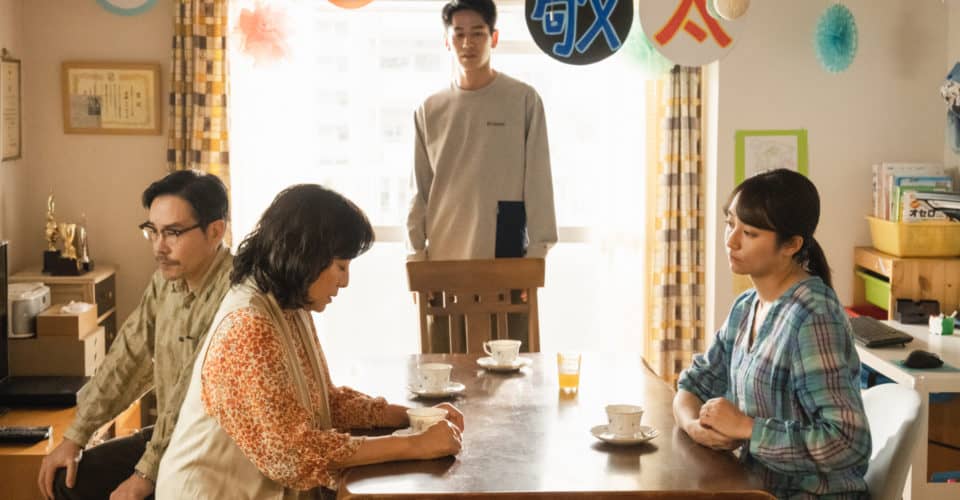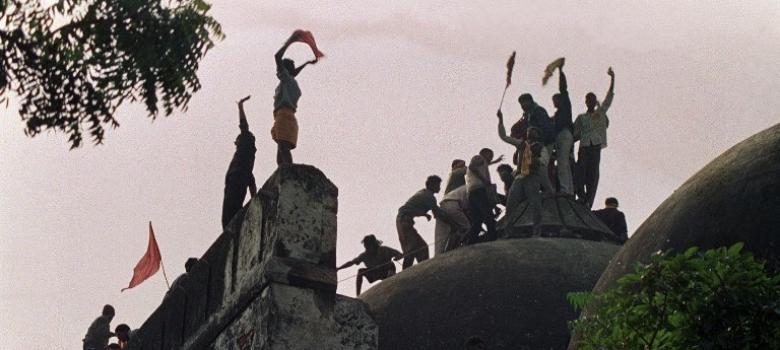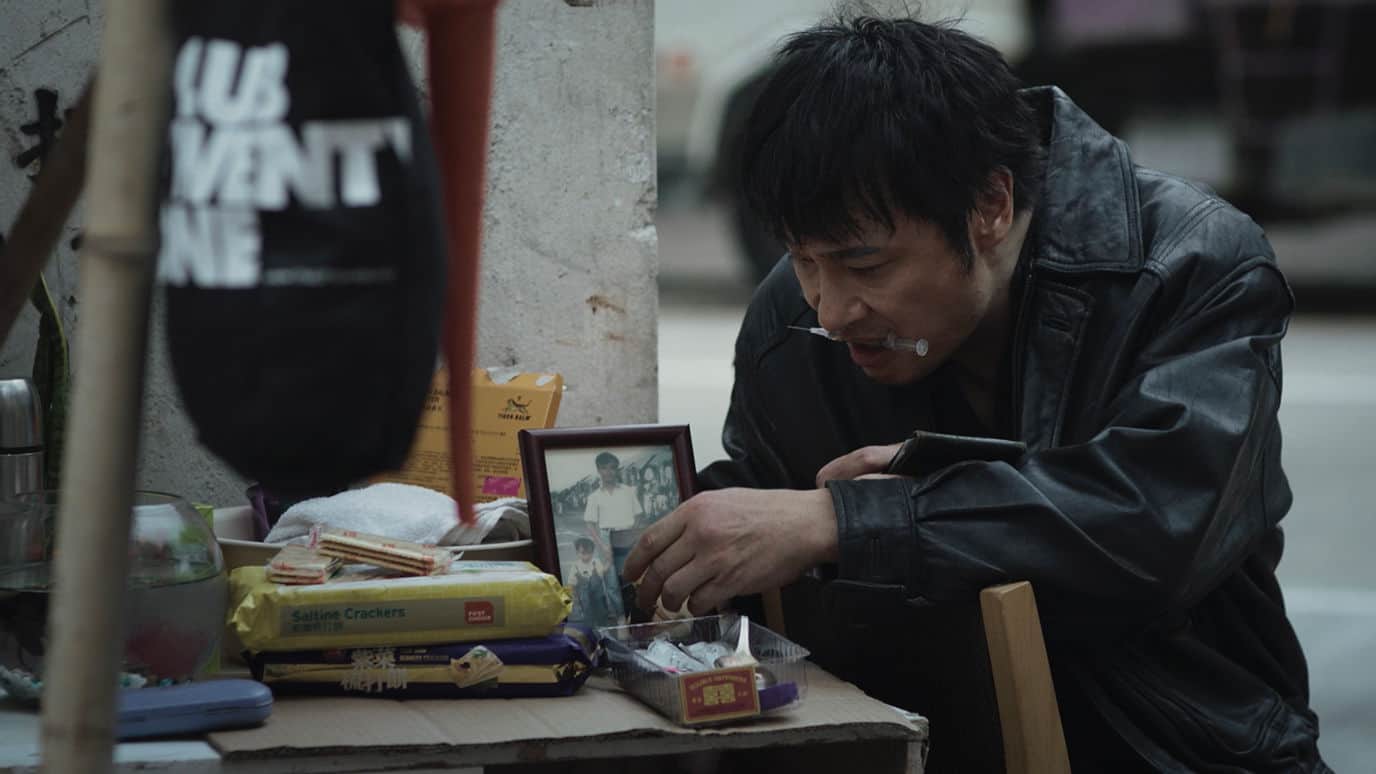In 2002, South-Korean director Kim Ki-duk only made one film, “The Coast Guard”, which, even though it scenery had changed in comparison to his last movie “Bad Guy” is in many ways a continuation of its themes. The concept of the outsider, the borders within our world and the emotional trauma have always been at the heart of Kim's cinema, but with “The Coast Guard” he went one step further, talking about the actual borders of his home country. Whereas other characters become outsiders through their deeds, the soldier in “The Coast Guard” does not choose his orders and because he obeys them turns into an outsider in the process. It is an interesting idea which is at the heart of the Korean's eight film, albeit with a few flaws in terms of execution and storytelling.
“The Coast Guard” is screening at Florence Korea Film Fest

For many years, Private Kang (Jang Dong-gun) has been training with his unit to guard the Korean border from the coast. While his comrades obey their orders and try to get their duty done as quickly as possible, Kang seems obsessed with the idea of capturing and shooting a North Korean spy, resulting in him wearing camouflage all the time and even trying to impress his superior with his shooting skills. Over time, their comrade has become something of a joke to the other officers, but when he is the only one who shots his rifle, they are all impressed and shocked at the same time. Because his vision was somewhat obscured, Kang mistook one of the local fishermen, who was having sex on the beach with Mi-young (Park Ji-a), for a spy, he executed the man, leading to furious protests from the locals demanding Kang should be put on trial. However, as Kang was only fulfilling his duty, he is instead honored and given a seven-day-leave.
While his superiors try to bury the incident, both Kang and Mi-young, are deeply affected by the event. Whereas Mi-young has become unresponsive to her father, mistaking other young men for her dead lover, Kang is completely changed, suffers from episodes of nausea and depression, which estranges him from his friends, family and also his comrades. As his behavior becomes increasingly erratic, his superiors realize they have to act, but as Kang is unable to forget what has happened and becomes a danger to himself and the other soldiers.
For those familiar with the director's work, you will know that violence and the act of killing have been discussed previously. Acts of violence have resulted in complete isolation (“The Isle”) or a necessary character trait within a certain social sphere (“Bad Guy”), and have transformed the main characters quite dramatically. Whereas Hang-gi's violence in “Bad Guy” was an element which defined him, this is not the case for Kang, at least not in the beginning of the movie, where he basically talks about killing, showing off his dedication to his unit and his somewhat problematic fascination with military attitude. A collage of scenes showing his training, the often humiliating exercises and the expression in the soldier's face, Ki-duk seems to hint at the possibility of this attitude being the result of these exercises, a systematic alignment, supervised by state officials, to become the perfect protector. However, as the killing actually takes place, it transforms the soldier, branding him not only unfit for duty, but also unearthing the worrisome repercussions of ridding a man such as Kang of his purpose.
Within the context of the themes he explores, the narration following Kang's downward spiral into depression and madness is the most interesting element of “The Coast Guard”. Even though Baek Dong-hye's cinematography highlights the change of the character, how he essentially becomes a “ghost” haunting others, the viewer is also kept at a certain distance, thus maintaining the ambivalence of the story. The same cannot be said with regard to Park Ji-a's character, who is not only underdeveloped but whose change seems less convincing, and also emphasizes some of the more problematic issues in the director's work when it comes to the portrayal of women.
In the end, “The Coast Guard” is a drama about the repercussions of violence and killing. Even though some elements fail to convince and seem somewhat problematic or misplaced, Kim Ki-duk discusses the character of the soldier who is made to function according to orders, but is then discarded once he shows signs of emotional instability.


